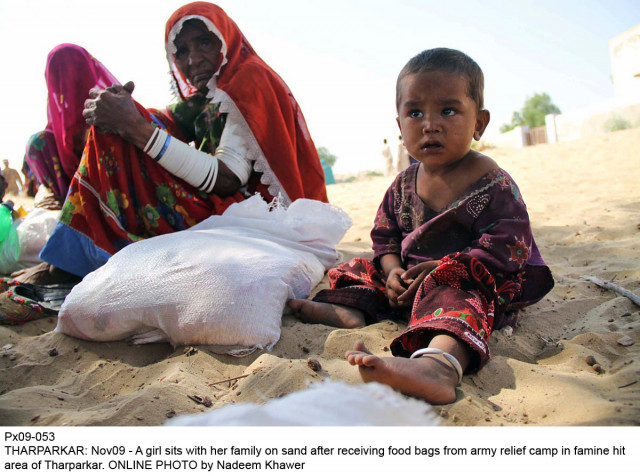Drought in Tharparkar
The government is silent on why there has been no reduction in the rates of mortality among children of the area


There is an almost complete lack of transparency surrounding this very quiet emergency. The government is silent on why there has been no reduction in the rates of mortality among children of the area, and the seven-member team appointed to inspect the district hospitals has refused to share its findings, thus begging the question as to why it was constituted in the first place. Doctors are themselves dismissive, saying that patients only refer themselves in the latter stages of illness when they are beyond curative care. The federal government is to conduct a survey of the needs of the Tharparkar communities with a view to policy development as to how best to support them in future. Indeterminate promises of remedial action in an undefined future do nothing to alleviate the ills of today or tomorrow. The provision of essentials, such as emergency rations and water, is logistically feasible and there are supplies in-country, so this does not need an international effort. Pakistan needs to develop a federal policy for all arid-area populations, not only those in Tharparkar.
Published in The Express Tribune, November 10th, 2014.
Like Opinion & Editorial on Facebook, follow @ETOpEd on Twitter to receive all updates on all our daily pieces.



















COMMENTS
Comments are moderated and generally will be posted if they are on-topic and not abusive.
For more information, please see our Comments FAQ